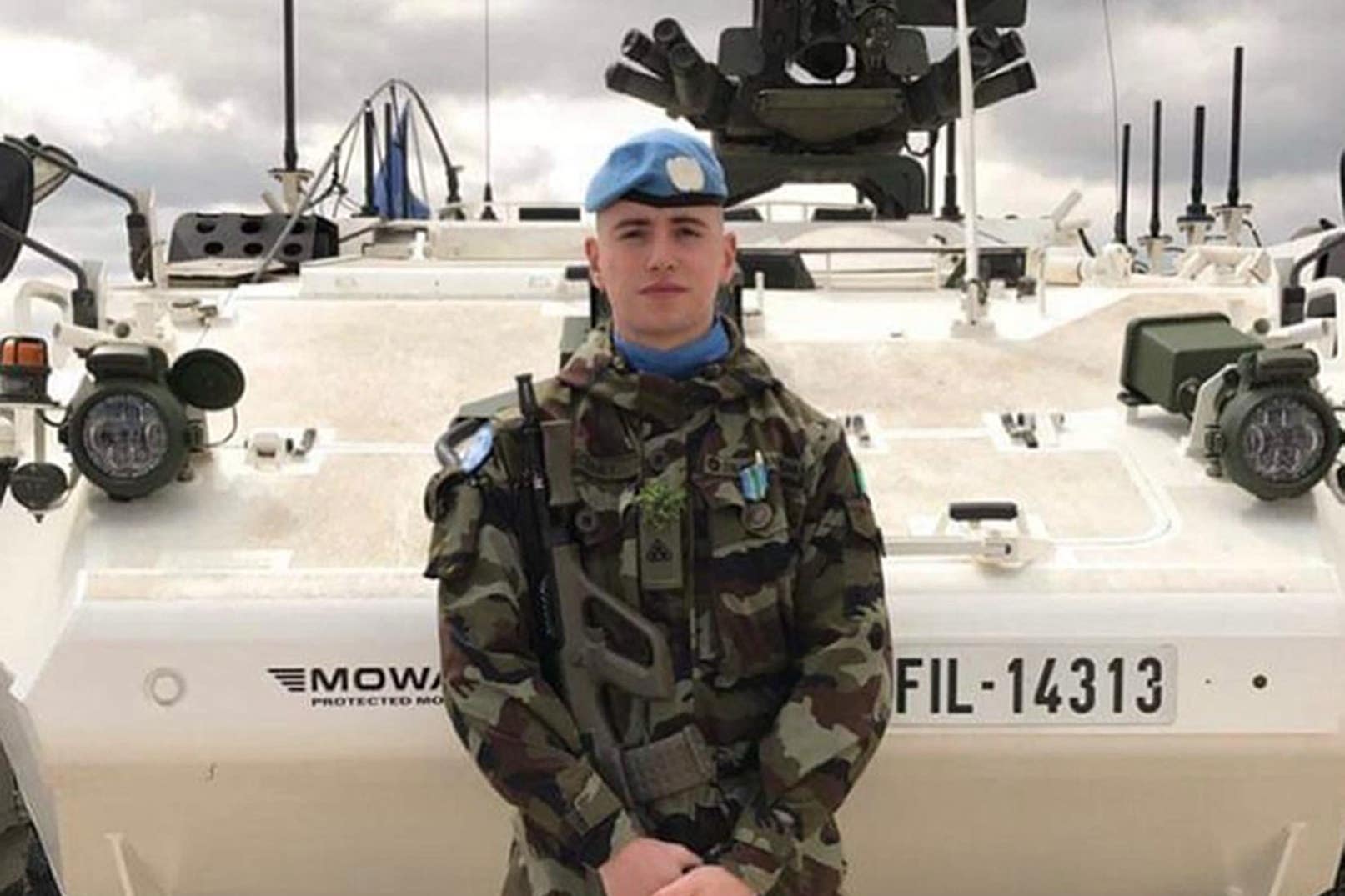Body of Irish peacekeeper killed by gunfire in Lebanon repatriated to Ireland
The remains of Private Sean Rooney were flown back to Baldonnel aerodrome in Dublin

Your support helps us to tell the story
From reproductive rights to climate change to Big Tech, The Independent is on the ground when the story is developing. Whether it's investigating the financials of Elon Musk's pro-Trump PAC or producing our latest documentary, 'The A Word', which shines a light on the American women fighting for reproductive rights, we know how important it is to parse out the facts from the messaging.
At such a critical moment in US history, we need reporters on the ground. Your donation allows us to keep sending journalists to speak to both sides of the story.
The Independent is trusted by Americans across the entire political spectrum. And unlike many other quality news outlets, we choose not to lock Americans out of our reporting and analysis with paywalls. We believe quality journalism should be available to everyone, paid for by those who can afford it.
Your support makes all the difference.The body of Irish UN peacekeeping soldier Sean Rooney has been returned to his grieving family after being repatriated from Lebanon.
A member of the Irish Defence Forces, Private Rooney, from Newtowncunningham, Co Donegal, was killed on active service when his convoy came under attack in Lebanon last week.
The 23-year-old’s remains left Beirut Airport on an Irish Air Corps Casa plane on Sunday afternoon after a solemn UN ceremony was held to honour the soldier ahead of his journey home.
Before leaving Beirut, Pte Rooney was awarded a number of honours posthumously, including a peacekeeping medal from the UN and an appreciation medal from the Lebanese armed forces.
He was accompanied on the flight by a number of his colleagues from 121 Infantry Battalion, including his company commander, who are understood to have never left his side.
At the Casement Aerodrome in Baldonnel, located on the outskirts of Dublin, a white coffin draped in the tricolour was carried out of the plane by a number of pall bearers.
Tanaiste and Minister for Foreign Affairs and Defence Micheal Martin stood beside the landing strip.
Pte Rooney’s coffin was then marched to a nearby hangar, where he was reunited with members of his grieving family.
His mother, his fiancee, his mother’s partner, his grandfather and his three uncles who have served in the Defence Forces were among those present.
They were given time alone with the remains before a short prayer service was held.
Pte Rooney’s coffin was driven away in a hearse accompanied by a Garda escort shortly afterwards.
Pte Rooney’s colleague, Private Shane Kearney, from Killeagh, Co Cork, was seriously injured in the incident and remains in a serious condition in hospital.
Two other peacekeepers were treated for minor injuries.
The soldiers were part of 121st Infantry Battalion, comprising 333 Irish troops, which was deployed in November to south Lebanon as part of the United Nations Interim Force in Lebanon (Unifil).
On Sunday, Taoiseach Leo Varadkar reiterated his condolences to Pte Rooney’s family and friends and colleagues in the Defence Forces.
He said it is important to understand the circumstances of the attack.
Three investigations are under way: one led by the UN, another by the Defence Forces and a third by the Lebanese government.
Mr Varadkar said: “I would have confidence in those investigations to find out exactly what happened, why an Irish soldier lost his life and another was severely injured.
“It’s important that we do that. It’s also important that we avoid any speculation, I think, at this point until those investigations are done.
“But the main thing, I think, this week really is to stand with and express our condolences to Private Rooney’s family, his friends and colleagues because it’s been a long time since we lost a soldier in combat in Lebanon. But it does remind us how important that mission is.”
Mr Varadkar said the Irish peacekeeping soldiers’ efforts have allowed people “in that part of Lebanon for the last few decades to lead a relatively normal life, which wouldn’t be the case otherwise”.
“It’s an immensely valuable mission – over 40,000 Irish people have served there, which is extraordinary if you think about it – and one that we’re very committed to,” the Taoiseach added.


